Being rooted in postcolonial reactivity, the chaos in Mali runs much deeper than terrorism.
As of the present, the West African nation of Mali is experiencing the fallout of a rebellion in the north and a military coup. The rebellion was sparked in December by a secessionist Tuareg movement, le mouvement national pour la liberation d’Azawad (MNLA), and the coup occurred on March 21, deposing President Amadou Toumani Touré for not having equipped Malian soldiers well enough to defend themselves against the MNLA. Due to the power vacuum that emerged as a result of the administrative and military chaos, the MNLA was able to capture the main towns in the north of the country and declare an independent nation of Azawad.
The new Malian government has sent mixed messages to the MNLA, with Interim President Dioncounda Traore threatening “total war” and Prime Minister Cheikh Modibo Diarra encouraging discourse. Furthermore, the West is greatly dismayed at the coup and rebel violence that has disrupted one of “Africa’s most stable democracies.” Moreover, since the rebel movements began, two terrorist organizations, Al Qaeda in the Islamic Maghreb (AQIM) and Ansar Dine, have laid claims for power within the nascent nation, and the latter has even started to implement Shari'a law in the ancient city of Timbuktu.
The onset of terrorism and complete disorder within the nation may seem unexpected in this formerly peaceful, “democratic” milieu, but the context of this violence is extensive and complex and deserves the utmost attention as the world continues to contemplate the nature of terrorism.
Before understanding the nature of terrorism in the Sahel, one must understand how the MNLA functions in relation to various definitions of “terrorism.” The US government defines “terrorism” as “premeditated, politically motivated violence perpetrated against noncombatant targets by subnational groups or clandestine agents." Although the MNLA is a politically motivated, subnational group that consists of clandestine agents, many of whom were formerly employed in Muammar Gaddafi’s military, its main targets are not civilians. However, the indirect results have included famine and mass displacement. Although the MNLA does not entirely meet the American terrorist criteria, it falls victim to the British government's entire Terrorism Act 2000 definition, including violence “made for the purpose of advancing a political, religious or ideological cause.” Significantly, this definition implicates the European acts of colonization, the very phenomenon against which the Tuareg have struggled for over a century. Moreover, during the process of decolonization, Mali’s colonizer, France, offered the Tuareg people a nation in the Sahara; this area is the current region of Azawad. However, when the French drew the borders and transferred responsibility to mimetic leaders, the Tuareg were excluded and forced to maintain their nomadic identity within countries that did not want them. They experienced disenfranchisement and other forms of de jure and de facto segregation in the first few decades of independence.
Considering this entire independence movement is a reaction to and invocation of colonization's civilizing nature, one must understand the causation that binds contemporary events to their context. When discussing violence, Jacques Derrida explains that physical violence is the third event of a causality. The first event is an act of classification. When the colonizers went to Africa and considered themselves to be superior, they established the aboriginal violence. This designation leads to the second act, which is a protective confirmation violence that institutes the classification’s “moral” cause. This is evidenced by the entire process of colonization during which the Europeans used discourse, among other devices, to defer themselves in relation to the natives, to separate themselves from the natives, to incite the natives to struggle against one another, and to exploit the native labor for profit. Any physical violence on behalf of the subordinated people results from this classification and subjugation and is the third violence, which “consists of revealing by effraction… the originary violence” that “has severed the proper from its property and its self-sameness.” Considering that the colonizers transferred political power to imitative leaders who would continue the colonial morality, the confirmation violence remains to this day and has striking implications.
The colonizers utilized many devices to subjugate the colonized, and several significant ones recur to enforce the old system. Certain economic devices like Structural Adjustment Programs (SAP) of the International Monetary Fund enforce privatization and investment in tiny, resource-deprived nations. Here, the poverty will persist as long as underdeveloped and developing nations are forced to use loaned money to develop a neoliberal infrastructure as opposed to developing education and healthcare systems, not ones that are given to them but ones that they can formulate of their own accord. SAPs proffer the world a free market, but it seems as if the invisible hand is an unconscious entity guided by latent instincts for power and desire. The citizens of the world’s most impoverished nations must ultimately be slaves to the desires of the powerful, and if they choose to rebel against the system as it has been written, many nations experience sanctions and/or other politico-economic repercussions.
The sanctions declared against Mali after the coup affected the nation within a week. Devices like SAPs and sanctions work in accordance with Friedrich Nietzsche’s interpretation of “free will,” which is a “pretext to assign guilt and justify punishment.” The impoverished are ultimately guilty because they are born into situations beyond their control, and if they endeavor to distance themselves from the system, they will be punished by the powerful. However, one must consider free will within such squalor, for decolonization did not offer the postcolonial world “freedom” as much as “agency,” or, as Gayatri Spivak defines, “institutionally validated action.”
The area of Azawad is so desperate that this violence seems to be more a trace of an instinct for self-preservation than a will to destroy anything. This violence is an indication of their having been severed from the land during the mission civilisatrice, for the Tuareg are a people struggling to preserve their ethnic identity and are more driven by a desire to surmount poverty than to provoke fear.
However, the violent acts of AQIM and Ansar Dine are in a different category from the Tuareg, considering that they target civilians and subjugate people. The United Nations defines terrorism as “criminal acts intended or calculated to provoke a state of terror in the general public,” and Al Qaeda’s track record in relation to this definition is undeniable. AQIM could benefit from the new state of Azawad because it has given them a chance to increase their influence in the region.
Multiple occidental news sources have claimed that AQIM is working in conjunction with the MNLA and the third organization Ansar Dine, but a few North African academics and MNLA spokespeople have since asserted that such sources are apocryphal. Ansar Dine, a very new organization, is not a secessionist movement and does not support the independent state of Azawad; its leader, Iyad ag Ghaly, fought for the Tuareg in the rebellions of the 1990s, but he supports a radical Islamic Mali. However, as of late June, the MNLA and Ansar Dine have signed a governance agreement. AQIM’s true involvement within this agreement remains unknown. Although two of these organizations have signed agreements, it seems as if each is acting independently for their own interests.
Considering media sources have provided conflicting information about the connections between the three movements functioning in the new state of Azawad, one must consider how Western media and governments fashion opinions about “terrorism” itself. One observes the broadness of Western definitions of “terrorism” and how Western governments have even conducted terroristic acts. The media and governments unreflectively employ their definitions of “terrorist” and engage in intended and unintended mass manipulation.
By merely labeling these people as "terrorists" and not providing context, these sources construct epistemological coupures that keep spectators separated from the events and unable to comprehend the inherent human aura of which each movement is a trace. The media is the product of the powerful, and the powerful merely want to maintain their power, so they will rarely endorse movements that threaten the supremacy of “democracy” or show sympathy, not pity, toward a desperately impoverished people.
However, the situation in West Africa is so economically inconsequential that most sources can neglect the crisis with few or no immediate repercussions. This willful negligence will only allow the violence to persist within the region as opposed to all sides recognizing the fault of hegemonic forces during the civilizing mission, attempting to overcome heteroglossia, and working to move forward peacefully. One must consider that violence occurring in the postcolonial world is the direct and indirect result of colonization and that the occident cannot continue to impress its notion of free-will upon people throughout the world without putting itself at risk in the future.
It seems that terms such as "terrorist" or “insurgent” refract perceptions of reality and render the masses incapable of arriving at a more complete understanding of modern violence. Instead of contemplating the violence, states are all too ready to retaliate. Regardless of whether the violence was intended to provoke fear, it invariably does. Violence is something that has evolved with humanity and is always reactionary.
At a micro level, people act violently because they believe they are alleviating negative feelings about certain stressors that have affected them. At a macro level, global violence tends to follow a few proclivities, and there are more than just two sides or a few civilizations clashing with one another. Global violent movements are defined by coalitions of subjects whose situationally contingent social identification and mutual doubt about social conditions incite them to invoke causes for retribution and/or revenge.
Displaced groups like the Tuareg oppose the occidental liberalizing mission and/or react to past violence that occurred during civilizing/liberalizing missions.
However, as long as oppressed people continue to oppose their superiors, violence will persist because the superiors will always retaliate and deem their violence to be “just.” Hegemonic forces are just as responsible for modern terrorism as terrorists are.
The choice seems simple: reject and ultimately regret, or accept and progress efficaciously. It's always too late to regret and never too early to accept. This is something that both sides must learn.
The views expressed in this article are the author's own and do not necessarily reflect Fair Observer’s editorial policy.
Support Fair Observer
We rely on your support for our independence, diversity and quality.
For more than 10 years, Fair Observer has been free, fair and independent. No billionaire owns us, no advertisers control us. We are a reader-supported nonprofit. Unlike many other publications, we keep our content free for readers regardless of where they live or whether they can afford to pay. We have no paywalls and no ads.
In the post-truth era of fake news, echo chambers and filter bubbles, we publish a plurality of perspectives from around the world. Anyone can publish with us, but everyone goes through a rigorous editorial process. So, you get fact-checked, well-reasoned content instead of noise.
We publish 2,500+ voices from 90+ countries. We also conduct education and training programs
on subjects ranging from digital media and journalism to writing and critical thinking. This
doesn’t come cheap. Servers, editors, trainers and web developers cost
money.
Please consider supporting us on a regular basis as a recurring donor or a
sustaining member.
Will you support FO’s journalism?
We rely on your support for our independence, diversity and quality.



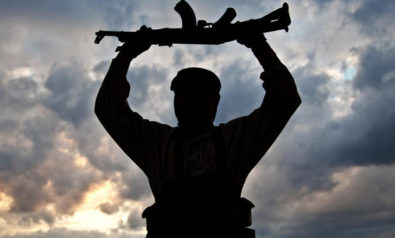
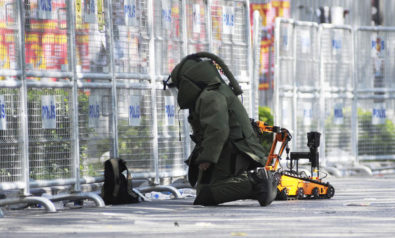
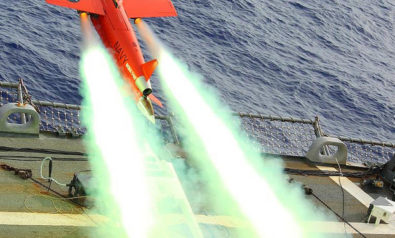
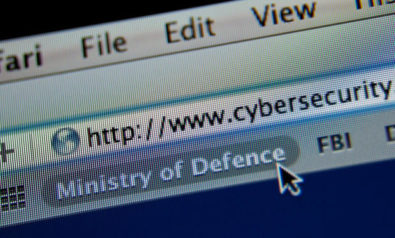

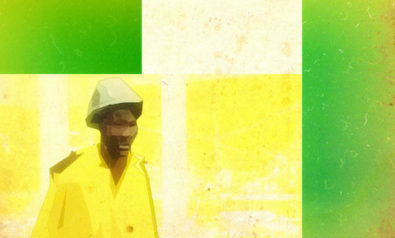
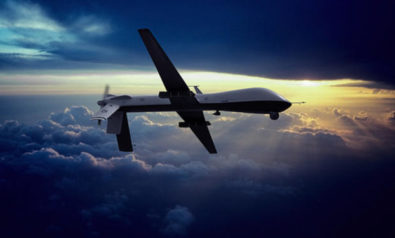
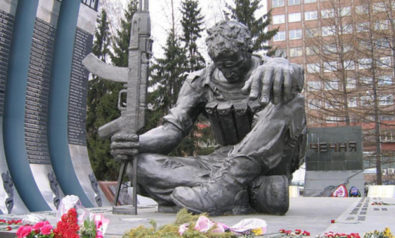
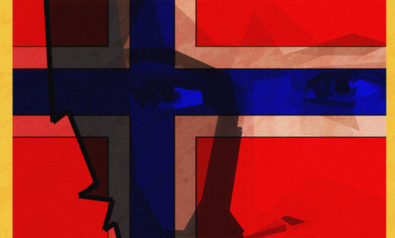
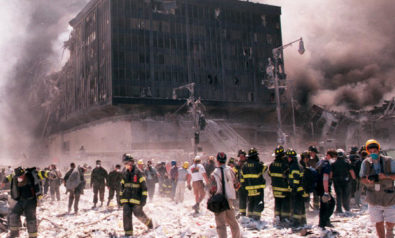
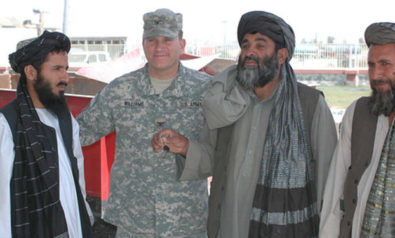
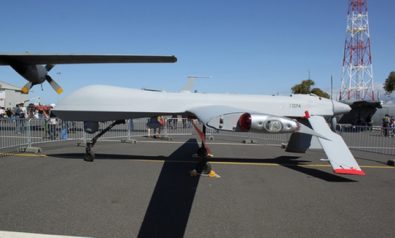

Comment